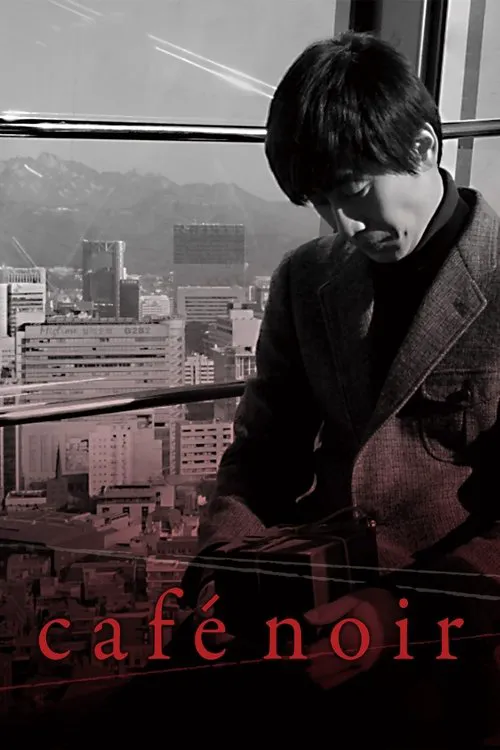Café Noir

Plot
Café Noir is a poignant South Korean drama that weaves a poignant narrative about heartbreak, regret, and the human search for meaning in a rapidly changing world. The film's story begins on a bleak Christmas Eve, where a man has been left by his girlfriend. This pivotal event sets off a chain reaction that takes him on a solo journey through the streets of Seoul, grappling with the fragmented nature of his own identity and relationships. As the man wanders aimlessly through the city, he finds himself drawn to a small café where he meets a young woman who is also nursing a broken heart. Without exchanging names or revealing their personal stories, they engage in a tender and intimate conversation that transcends language barriers and societal norms. This fortuitous encounter sparks a sense of connection and understanding between the two strangers, allowing them to momentarily escape the pain of their individual sorrows. Through their conversations, the camera pans across the cityscape of Seoul, revealing the stark contrasts of modernity and tradition, love and loneliness, hope and despair. The film's cinematography captures the melancholic atmosphere of a city in transition, where ancient temples and neon-lit skyscrapers coexist in a dizzying array of sights and sounds. As the story unfolds, the focus shifts to a series of vignettes that reveal the lives of the café's patrons, each with their own tales of love, loss, and longing. There's the reclusive businessman who seeks solace in the café's quiet comfort, the young couple struggling to reconcile their differing aspirations, and the elderly woman who pours her heart out to the café's owner. Through these vignettes, the film masterfully explores the complex web of relationships that make up the fabric of human experience. Throughout the narrative, the man and the young woman continue to meet at the café, their conversations deepening as the days turn into weeks. They find solace in each other's company, sharing their fears, desires, and dreams. Their rapport is built on a foundation of trust and empathy, which becomes the driving force behind their growing connection. However, as the season changes and the days grow longer, the man begins to realize that his encounter with the young woman has opened up new possibilities for him. He starts to confront the choices he made in the past, including the decision to pursue a relationship that ultimately failed him. This newfound self-awareness propels him to reevaluate his life, sparking an existential crisis that threatens to upend his sense of identity and belonging. As the story hurtles towards its conclusion, the man must make a difficult choice: to hold onto the familiarity of his past or to take a leap of faith into the unknown. Will he choose to rekindle his relationship with the young woman or leave her to her own journey of self-discovery? The film's final scenes unfold with a tender sensitivity, respecting the characters' agency and the complexity of real-life choices. Café Noir is a rich and contemplative drama that explores the human condition with sensitivity and nuance. Shot in stark, muted tones, the film's visual palette perfectly complements its themes of love, loss, and self-discovery. By focusing on the quiet moments and subtle emotions that shape our lives, the film invites viewers to reflect on their own experiences of heartbreak, regret, and transformation. Ultimately, Café Noir presents a powerful meditation on the human need for connection and understanding. In a world where we are increasingly atomized and isolated, the film reminds us that even in the midst of sorrow and disappointment, there is always hope for redemption and new beginnings. As the camera pans out, capturing the cityscape one last time, we are left with a sense of closure, but also a sense of possibility, and the promise of a new chapter yet to be written.
Reviews
Recommendations




